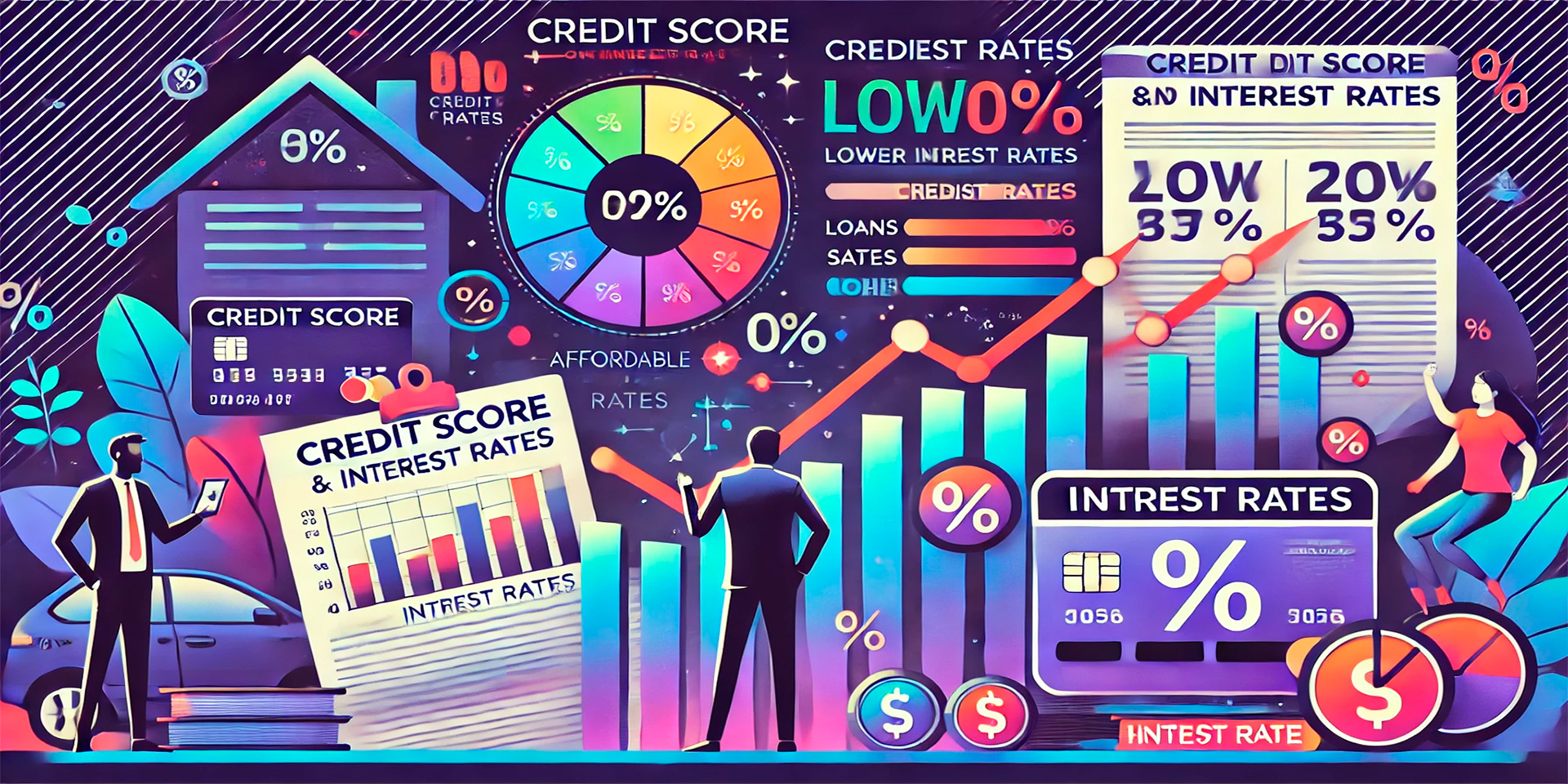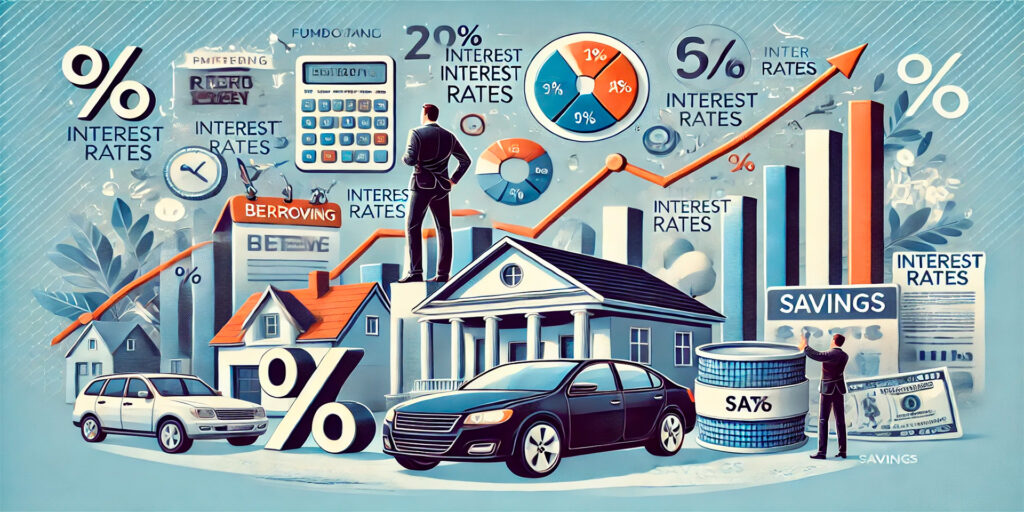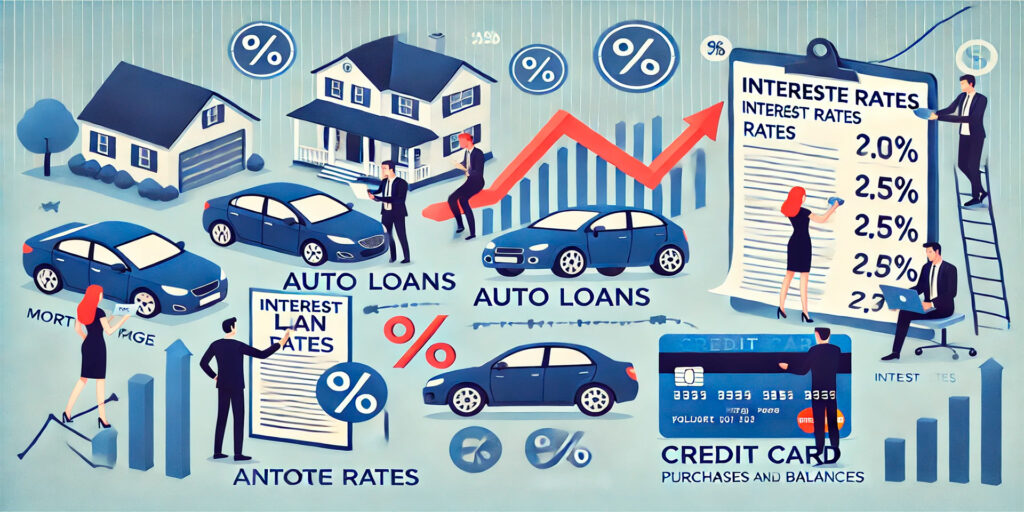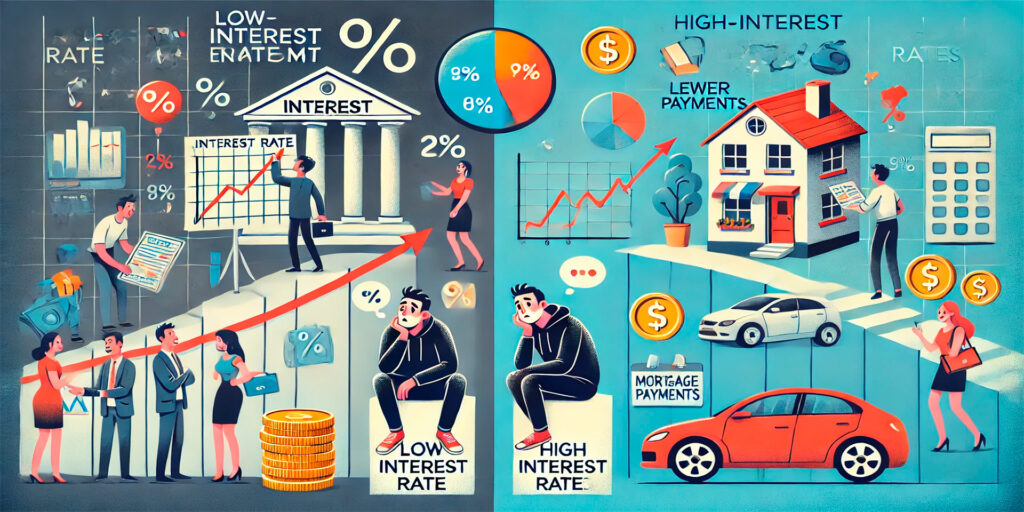Your credit score is one of the most significant factors that determines the interest rates you qualify for when applying for loans or credit. A higher credit score typically leads to lower interest rates, making borrowing more affordable, while a lower score often results in higher rates, increasing the overall cost of borrowing. This relationship between interest rates and credit scores has a direct impact on your financial outcomes, from the total amount you’ll pay for a mortgage to the interest accrued on your credit cards.
The better your credit score, the more trust lenders place in you as a borrower. This trust translates into lower interest rates because you’re perceived as less of a risk. On the other hand, a low credit score indicates higher risk to lenders, leading them to charge higher interest rates to offset the potential for default. Understanding how your credit score influences the interest rates you’re offered can help you make informed financial decisions and save money over the long term.
How Credit Scores Influence Interest Rates
When you apply for credit—whether it’s a mortgage, car loan, or credit card—lenders assess your credit score to determine how much they’re willing to lend and at what rate. Your credit score is essentially a measure of your creditworthiness, based on factors such as your payment history, outstanding debts, and length of credit history. A higher score indicates that you’ve managed credit responsibly, which makes lenders more confident in offering you favorable terms.
For example, a borrower with a credit score of 750 is likely to receive a much lower interest rate on a mortgage than someone with a score of 600. Even a small difference in interest rates can have a significant financial impact, especially on long-term loans like mortgages, where a lower rate can save you tens of thousands of dollars over the life of the loan.
On the other hand, borrowers with lower credit scores often face higher interest rates because lenders view them as higher-risk borrowers. These higher rates can increase your monthly payments and the total cost of borrowing, making it more challenging to manage debt and achieve your financial goals.
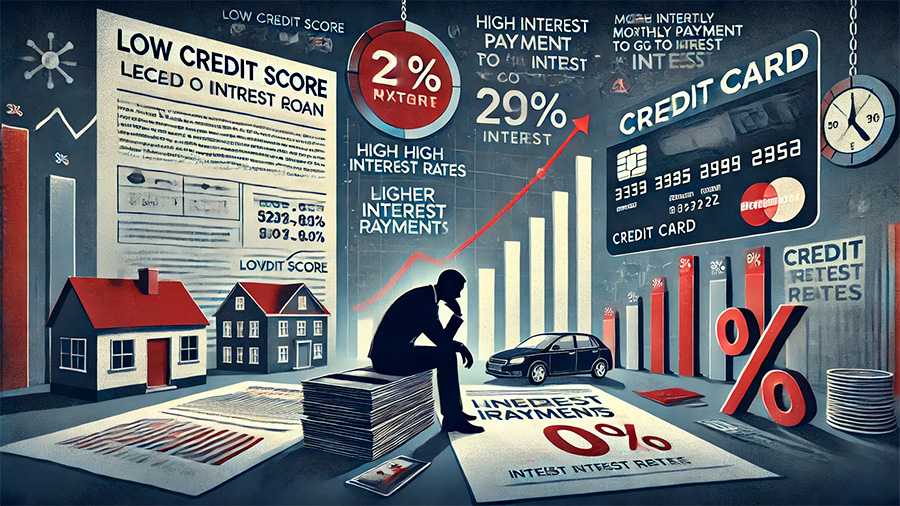
The Cost of High Interest Rates for Low Credit Scores
When your credit score is low, the interest rates you’re offered tend to be much higher. This can result in higher monthly payments and a larger total repayment amount over the life of the loan. For example, if two borrowers take out the same loan amount but one has a credit score of 700 and the other has a score of 600, the borrower with the lower score will pay more in interest, even though they borrowed the same amount.
High interest rates also mean that more of your monthly payment goes toward interest rather than reducing the principal amount of the loan. This can make it more difficult to pay off debt quickly, as a larger portion of your payment is being used to cover interest charges rather than paying down the loan balance.
Credit cards, which often carry higher interest rates than other types of credit, can be particularly costly for individuals with low credit scores. Carrying a balance on a high-interest credit card can lead to significant interest charges, making it harder to pay off the balance and increasing the risk of falling deeper into debt.
Improving Your Credit Score to Secure Lower Interest Rates
One of the most effective ways to reduce the interest rates you’re offered is to improve your credit score. By boosting your score, you can qualify for better loan terms, including lower interest rates, which will save you money in the long run. Improving your credit score takes time and effort, but the financial benefits are well worth it.
To improve your credit score, start by reviewing your credit report to ensure there are no errors or inaccuracies that could be dragging down your score. Dispute any errors you find with the credit bureaus to have them corrected. Additionally, focus on paying down existing debt, especially credit card balances, to lower your credit utilization ratio, which is a key factor in determining your score.
Making on-time payments is another crucial factor in improving your credit score. Late or missed payments can have a significant negative impact, so it’s important to ensure that all of your bills are paid on time. Setting up automatic payments or payment reminders can help you stay on track.
As your credit score improves, you’ll be in a better position to qualify for lower interest rates on loans and credit cards. Even a modest improvement in your credit score can result in more favorable borrowing terms, which can save you a substantial amount of money over time.
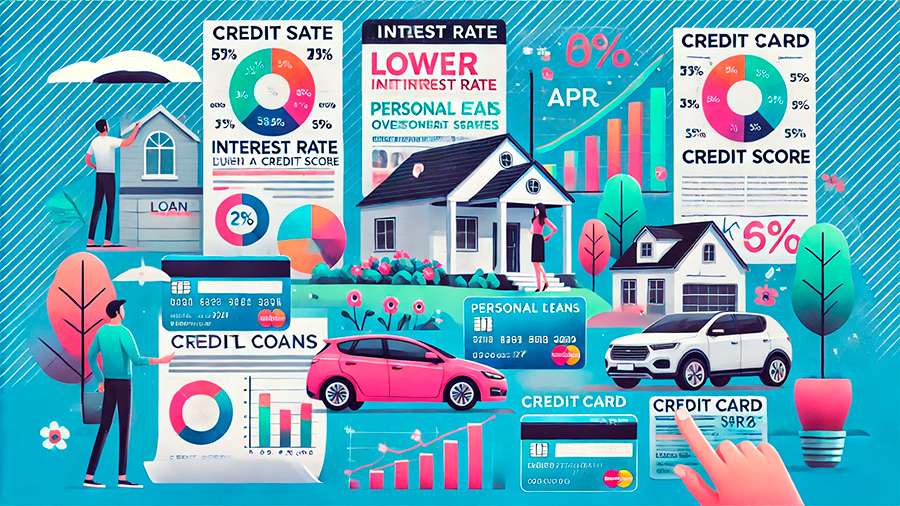
How Interest Rates Affect Loan Types
Different types of loans are affected by your credit score in varying ways. For mortgages, car loans, and personal loans, lenders rely heavily on your credit score to determine the interest rate they’ll offer. A higher credit score not only means a lower interest rate but can also increase the loan amount you qualify for.
For example, in the case of mortgages, a lower interest rate can make a significant difference in your monthly payments. Over the course of a 30-year mortgage, even a difference of one or two percentage points in the interest rate can save you tens of thousands of dollars. This makes it essential to secure the best possible rate by maintaining a strong credit score.
Credit cards also factor in your credit score when determining the APR (Annual Percentage Rate) they’ll charge you. Borrowers with excellent credit can often qualify for credit cards with lower APRs and even introductory 0% interest offers, making it easier to manage short-term debt without accruing large amounts of interest. Conversely, those with lower credit scores are more likely to receive higher APRs, making it more costly to carry a balance.
Planning Ahead for Better Financial Outcomes
Maintaining a high credit score is not just about getting the best interest rates in the present—it’s about securing better financial opportunities in the future. If you plan to buy a home, finance a car, or take out a personal loan, improving your credit score now can set you up for more favorable terms when the time comes.
Additionally, regularly checking your credit report and keeping track of your credit score allows you to identify areas for improvement. By staying proactive and addressing any issues early, you can ensure that your credit score remains strong and that you’re in the best possible position to secure low interest rates on future loans.
The relationship between credit scores and interest rates is clear: the better your credit score, the lower your interest rates, and the less you’ll pay over time. By focusing on building and maintaining a strong credit profile, you can save money and achieve greater financial flexibility in the long run.
Conclusion
Your credit score directly affects the interest rates you’re offered, and improving your score can lead to better financial outcomes. By understanding the relationship between credit scores and interest rates, you can make more informed borrowing decisions that save you money and support your financial goals. Whether you’re planning to buy a home, finance a car, or apply for a credit card, maintaining a strong credit score will help you secure the best possible rates and set you up for long-term financial success.

